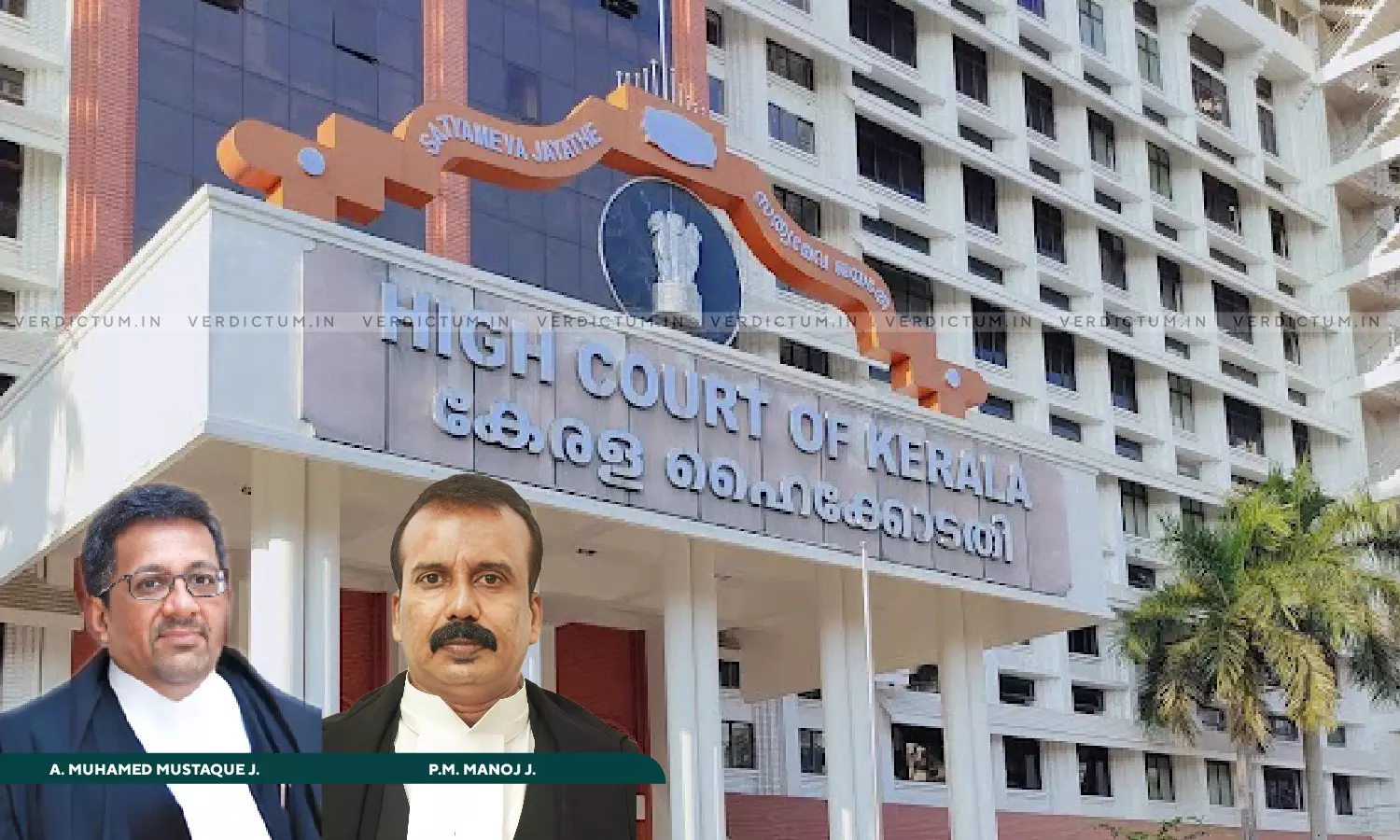
State Bound To Establish Service Centers Providing Services To Persons With Disabilities Including Visually Challenged: Kerala HC
 |
|The Kerala High Court said that the State or Public Service Commission (PSC) is bound to establish service centers providing services to persons with disabilities including the visually challenged.
The Court was dealing with a petition filed by the Kerala PSC in which an important question arose that, whether the PSC's rule although neutral on its face, fails to accommodate individuals with disabilities, thereby violating principles of equality and non-discrimination.
A Division Bench of Justice A. Muhamed Mustaque and Justice P.M. Manoj emphasised, “… it is the duty of the PSC and the State to provide measures to allow visually challenged to submit applications online without barriers. The State or PSC are bound to establish service centers providing services to persons with disabilities including the visually challenged. We hope the State and the PSC will do the best for them.”
The Bench remarked that our systems are designed for those with sight, our laws are created for those who can see, our Constitution gave us vision, yet we fail to recognise the blind and in doing so, we too become blind.
Advocate P.C. Sasidharan appeared on behalf of the petitioners while Senior Government Pleader Nisha Bose, Advocates K. Shaj, and Minu Vittoria Paulson appeared on behalf of the respondents.
The case revolved around a challenge to a seemingly neutral rule of the PSC regarding the submission of qualification certificates by the stipulated deadline, due to its disproportionate impact on individuals having disabilities. In this case, the respondent was a 35-year-old differently-abled woman with 100% visual disability. She had applied for the post of Upper Primary School (UP) Teacher in response to a notification issued by the PSC in 2019. Unfortunately, she failed to upload her Kerala Teacher Eligibility Test (KTET) certificate, a mandatory qualification, with her application. Consequently, her application was rejected and the PSC published a short list of candidates in 2021.
The respondent brought her grievance to the Tribunal, arguing that the rigid application of the rule unfairly discriminated against her due to her visual disability. The Tribunal found that she had acquired the necessary qualifications, including the KTET certificate, well before the issuance of the notification. Taking a humanitarian approach, the Tribunal directed the PSC to allow her to participate in the selection process despite her initial failure to upload the KTET certificate by the deadline. Hence, this was challenged before the High Court.
The High Court after hearing the contentions of the counsel, noted, “PSC discarded the conventional method of application. PSC’s General Conditions 26A and 27, do not consider the specific disadvantages faced by visually impaired candidates, who often rely on third-party assistance to submit online applications. This exclusionary approach disregards the need for accessibility and reasonable accommodation within the digital environment—a fundamental aspect of substantive equality which cannot be confined to the physical world alone.”
The Court added that the failure to address the unique needs of visually impaired individuals in the online application process amounts to a denial of their right to equal opportunity.
“The duty of the State extends beyond merely providing access to public buildings and services; it must also ensure that digital platforms are accessible to everyone, including persons with disabilities. This obligation flows from both international and domestic law, specifically, UNCRPD and the Rights of Persons with Disabilities Act, 2016”, it observed.
The Court further noted that PSC is a constitutional body, and has a constitutional obligation to provide a fair opportunity to all prospective candidates to apply without barriers and the digital accessibility as such has to be read as part of substantial equality.
“The State and PSC are bound to address disadvantages faced by persons with visual disability. The State might realize equality cannot be achieved if the differences of such candidates are not responded to. Every race begins from a starting point. The starting points of all runners of the race cannot be the same. The starting point of the race of a person with a disability must be different from the candidate with ability. The State and PSC failed to recognise and acknowledge this”, it also said.
Accordingly, the High Court dismissed the petition.
Cause Title- The Kerala Public Service Commission & Anr. v. Sabeena K.S. & Anr. (Neutral Citation: 2024:KER:77843)